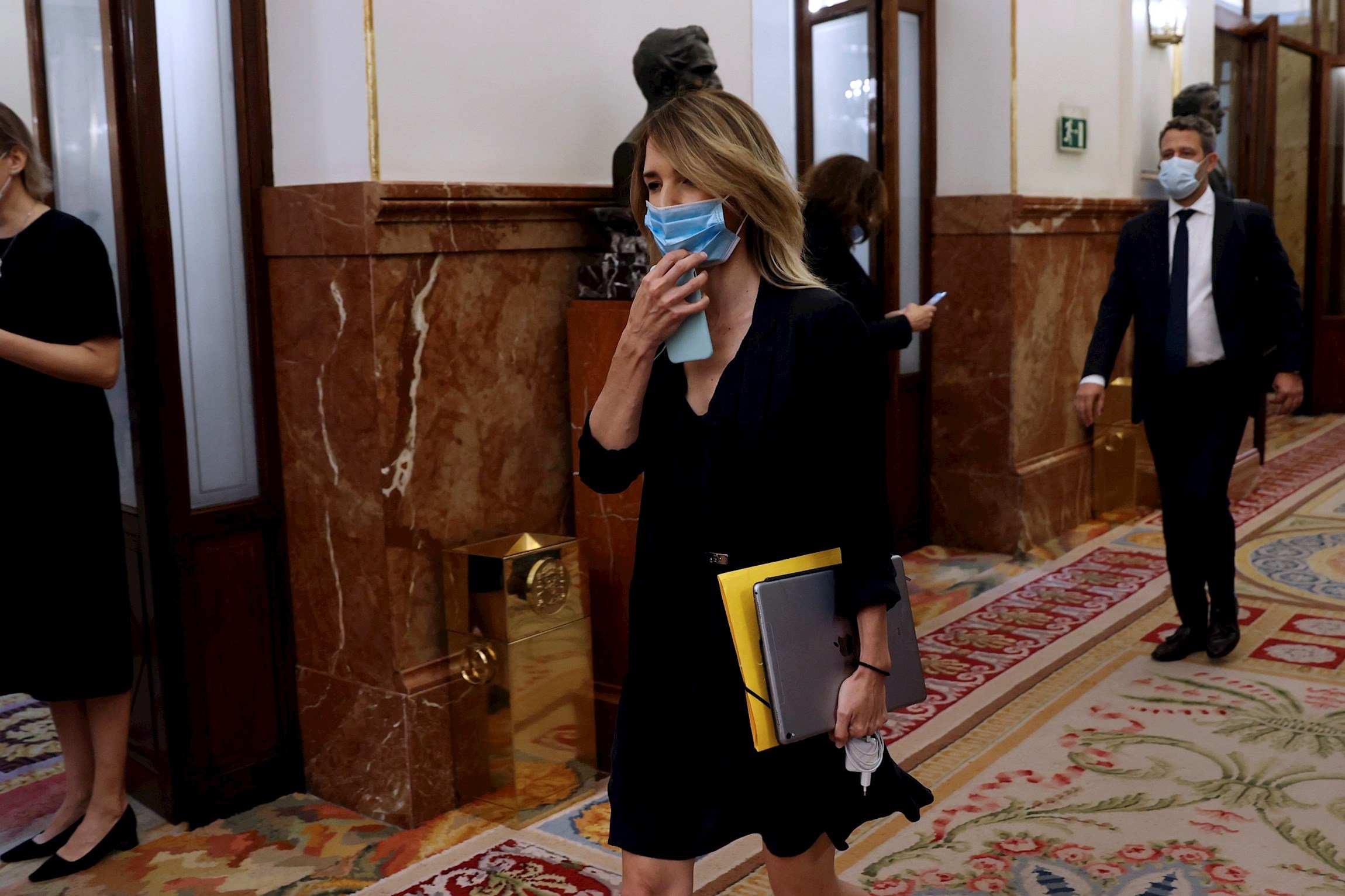Once again, Cayetana Álvarez de Toledo has starred in the most hyperventilated scene from this Wednesday's session in the Spanish parliament. In comments directed at Pablo Iglesias, the outspoken conservative politician Álvarez de Toledo went as far as asserting that Iglesias - who is deputy prime minister of Spain for social affairs - was "the son of a terrorist". She told him that he is "ETA's ambassador to the Spanish government", evoking the now-dissolved Basque terrorist group. The Podemos leader responded by saying that he would "invite" his father, Francisco Iglesias, to "take appropriate the actions." The discourse is part of a fake news story: disinformation on Iglesias's family spread by the far right on social media.
The PP spokesperson in Congress and aristocratic title holder lost her cool after Iglesias repeatedly referred to her as señora marquesa - "Madame Marchioness", and she hit back. "We are talking about this aristocracy thing. He referred to my title of Marchioness. As you know, children are not responsible for their parents", replied Álvarez de Toledo. And she countered: “That's why I'll say this for the first and last time. You are the son of a terrorist. You belong to that aristocracy, to that of political crime”. And she received a standing ovation from her party.
In the face of this, Iglesias's response was not long in coming. From the lectern, he replied: "Madame Marchioness, if you think that calling my father a terrorist will provoke me and make me lose my composure, you are wrong." And he warned her: "You just committed a crime here on this rostrum. Only someone with noble titles would be capable of believing they had the impunity to call someone a terrorist and get away scot-free. I will invite my father to take the appropriate action."
At the end of the discourse, the speaker, Meritxell Batet, invited Álvarez de Toledo to withdraw the expression from the parliamentary record of the session. The PP spokesperson refused: “His father, as he had admitted in an interview, was a member of the FRAP (Antifascist and Patriotic Revolutionary Front). Thank you". And she continued to press the matter on Twitter.
¿Cómo se llama al que milita en una organización terrorista? ¿Marqués? https://t.co/E3TUzI1wEJ pic.twitter.com/jv4nUzY69A
— Cayetana Alvarez de Toledo (@cayetanaAT) May 27, 2020
"What is the name of the person who is a member of a terrorist organization? Marques?"- Cayetana Alvarez de Toledo
Who is Pablo Iglesias's father?
A retired labour inspector and university professor, Francisco Javier Iglesias Pérez was a member of the FRAP, a group linked to the Spanish Communist Party that carried out acts of violence from 1973 to 1978, but he was never accused of participating in any terrorist actions. He was arrested on April 26th, 1973 and went to prison two days later - for distributing illegal propaganda on May Day.
Both father and son have always acknowledged Iglesias senior's involvement in the FRAP, while denying that he ever committed violence against a person. In 2019, a far-right Vox MEP, Hermann Tertsch, was required to pay compensation of 15,000 euros to Pablo Iglesias's father for "illegitimate interference" and "violation of the right to honour, privacy and self-image", after accusing him of being connected to one of the three murders committed by FRAP.
"Are you suggesting the Civil Guard should disobey orders?"
If part of the tense background to today's "terrorist" comment in Congress was the conflict which has come into the open between Civil Guard officials and the Socialist-Podemos administration, that same tension was even more directly addressed in another particularly harsh confrontation earlier in the day in Congress.
Again, Iglesias was being criticised, this time by senior PP figure Teodoro Garcia Egea, who accused the Sánchez government of dismissing an "honest" man - Civil Guard colonel De los Cobos - and putting its own ideology first. Iglesias replied by suggesting he might be calling for the Civil Guard to act insubordinately: "Are you asking members of the police and security forces of the state to fail to follow orders that they consider to be unjust?”

